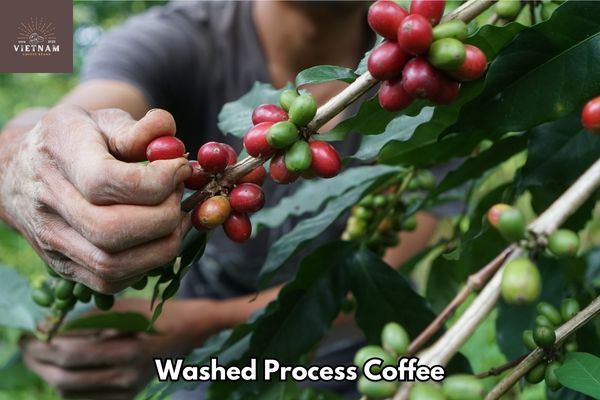
As a coffee lover, I am always on the lookout for ways to make my daily caffeine fix healthier and more sustainable. One option that has caught my attention lately is organic coffee beans.
But what exactly are the benefits of choosing organic over conventional coffee? In this article, we will explore the environmental and health advantages of organic farming practices, as well as how they translate into a better cup of joe.
Organic coffee farmers use methods that prioritize soil health, biodiversity, and natural pest control instead of relying on synthetic fertilizers and pesticides. By avoiding harmful chemicals, organic farms promote healthy ecosystems and protect the safety of farm workers.
Additionally, research suggests that these practices can lead to higher antioxidant levels in the beans themselves. As someone who cares about both my own health and the planet’s wellbeing, switching to organic coffee seems like a no-brainer.
Let’s dive deeper into why this choice matters.
Key Takeaways
- Organic coffee is produced according to strict criteria set by the USDA Organic label, which prohibits the use of synthetic pesticides, fertilizers, and GMOs, and requires shade growing, crop rotation, and natural pest management techniques.
- Organic coffee has several advantages, including promoting biodiversity, improving soil quality, providing a better working environment for farmers, boosting natural nutrients for better health, and potentially improving mood and reducing stress.
- However, there are also disadvantages to organic coffee, such as higher prices due to strict certifications and labor-intensive processes, potential ineffectiveness in combating coffee diseases and pests, and lower yields compared to conventional methods.
- When buying organic coffee, it is important to look for the USDA Organic label, consider the source of the coffee beans, look for Fairtrade certification, and understand that organic farming practices do not guarantee a specific flavor profile.
What is Organic Coffee?
Organic coffee refers to coffee that is produced using methods prioritizing environmental sustainability and health benefits. It is grown without synthetic pesticides, fertilizers, or GMOs. Organic coffee farmers rely on shade growing, crop rotation, and natural pest management techniques. These practices promote biodiversity, improve soil quality, and reduce chemical residue.
The environmental impact of organic coffee is significant, as it creates a better working environment for farmers and supports a sustainable ecosystem. Additionally, organic coffee is believed to have health benefits. It may boost natural nutrients for better health and immune system, as well as potentially improve mood and reduce stress.
However, it is important to note that organic farming practices do not guarantee a specific flavor profile, and the taste can be influenced by various factors.
Certifications and Criteria
Certifications and criteria for organic coffee ensure the absence of synthetic pesticides, fertilizers, and GMOs, as well as the adherence to shade growing, natural pest management techniques, and processing free of additives and artificial chemicals. These certifications provide consumers with the assurance that their coffee is produced using sustainable and environmentally-friendly practices.
While there are pros and cons to organic certifications, such as higher prices and potential limitations in combating coffee diseases and pests, the benefits of organic farming are evident. Organic farming practices promote biodiversity, improve soil quality, and create a better working environment for farmers.
However, it’s important to note that the flavor profile of coffee is influenced by various factors, not solely organic farming practices. To ensure the best taste, it is essential to research and verify organic certifications and sources.
Advantages and Benefits Organic Coffee Beans
Shade-grown organic coffee offers numerous advantages and benefits. It promotes biodiversity, improves soil quality, and creates a better working environment for farmers.
By providing a natural habitat for birds and other wildlife, shade-grown coffee plantations help sustain a healthy and diverse ecosystem. This not only contributes to the overall health of the environment but also supports the livelihoods of local farmers.

Additionally, organic farming practices, such as using organic fertilizers and natural pest management techniques, help improve soil quality and reduce chemical residue. This ensures that the coffee beans are free from harmful pesticides and chemicals, making them a healthier choice for consumers.
Moreover, shade-grown organic coffee can have personal health benefits. It boosts natural nutrients for better health and an improved immune system. It also improves mood and reduces stress.
By choosing shade-grown organic coffee, you not only enjoy a delicious cup of coffee but also contribute to environmental sustainability and support the well-being of farmers.
Disadvantages and Challenges
One potential downside to choosing organic coffee is the higher price associated with the strict certifications and labor-intensive process. The organic farming methods used in the production of organic coffee require more time, effort, and resources, resulting in increased costs. These additional expenses are reflected in the price of the coffee, making it more expensive compared to conventionally grown coffee.
Another aspect to consider is the impact on the flavor profile of organic coffee. While organic farming practices promote biodiversity and sustainable ecosystems, they do not guarantee a specific taste or flavor. The flavor of coffee is influenced by various factors such as the coffee bean variety, growing conditions, processing methods, and roasting techniques. Therefore, it is important to research and select organic coffee brands that align with your personal taste preferences.
Despite these challenges, many coffee enthusiasts find the benefits of organic coffee, such as improved soil quality, reduced chemical residue, and better working conditions for farmers, outweigh the higher cost. It ultimately comes down to individual priorities and the value placed on supporting sustainable and environmentally-friendly practices in the coffee industry.
Buying and Choosing Options
When it comes to buying and choosing organic coffee, I like considering the source of the coffee beans and looking for Fairtrade certified options. It’s important to me that the coffee I consume isn’t just organic, but also supports fair and sustainable farming practices. I believe that by choosing organic coffee, I’m not only benefiting my own health but also contributing to preserving the environment and conserving wildlife.
In terms of price, organic coffee tends to be slightly more expensive than conventional coffee due to the strict certifications and labor-intensive process involved in its production. However, I believe that the additional cost is worth it considering the positive impact it has on both human health and the environment. By choosing organic coffee, I am supporting farmers who prioritize biodiversity and sustainable farming practices, which are crucial for maintaining a healthy ecosystem. Organic coffee also helps reduce the use of synthetic pesticides and fertilizers, which can be harmful to wildlife and contribute to water pollution.
Comparing organic and conventional coffee prices, it’s important to consider the long-term benefits and the true cost of conventional coffee production, which often involves the use of synthetic chemicals and unsustainable farming practices. While organic coffee may have a slightly higher price tag, I believe it’s a small price to pay for the health of our planet and future generations.
Frequently Asked Questions
Conclusion
Overall, I highly recommend making the switch to organic coffee beans for coffee drinker.
Not only are they grown using environmentally friendly farming practices that promote biodiversity, but they also offer numerous health benefits.
Organic coffee has been shown to have higher levels of antioxidants than conventionally grown coffee, which can help protect against chronic diseases such as cancer and heart disease.
By choosing organic coffee, you’re not only making a healthier choice for yourself but also for the environment.
Supporting sustainable farming practices helps ensure that we have a healthy planet for generations to come.
So next time you reach for a cup of coffee in the morning, consider opting for organic beans and reap the benefits both for yourself and our planet.






